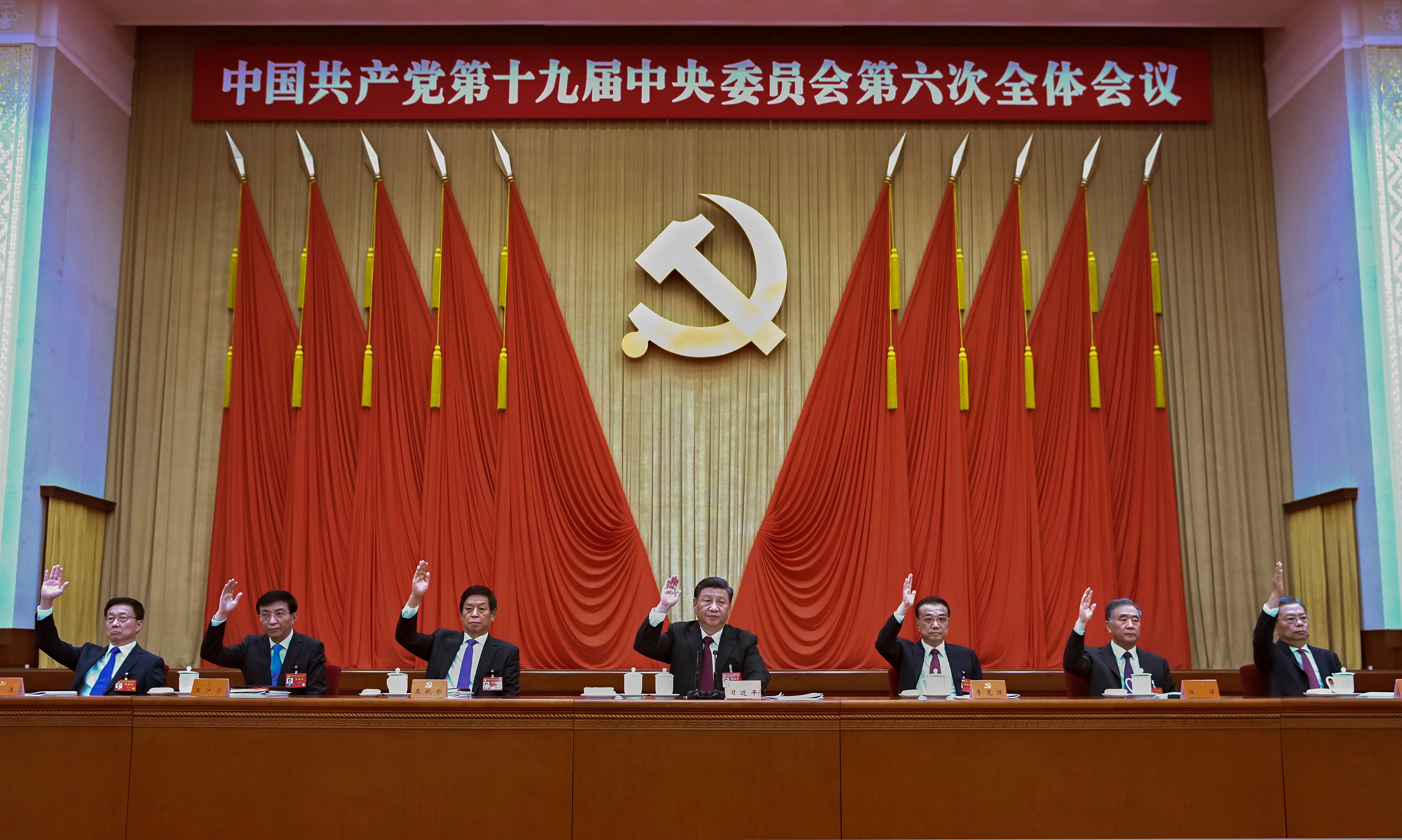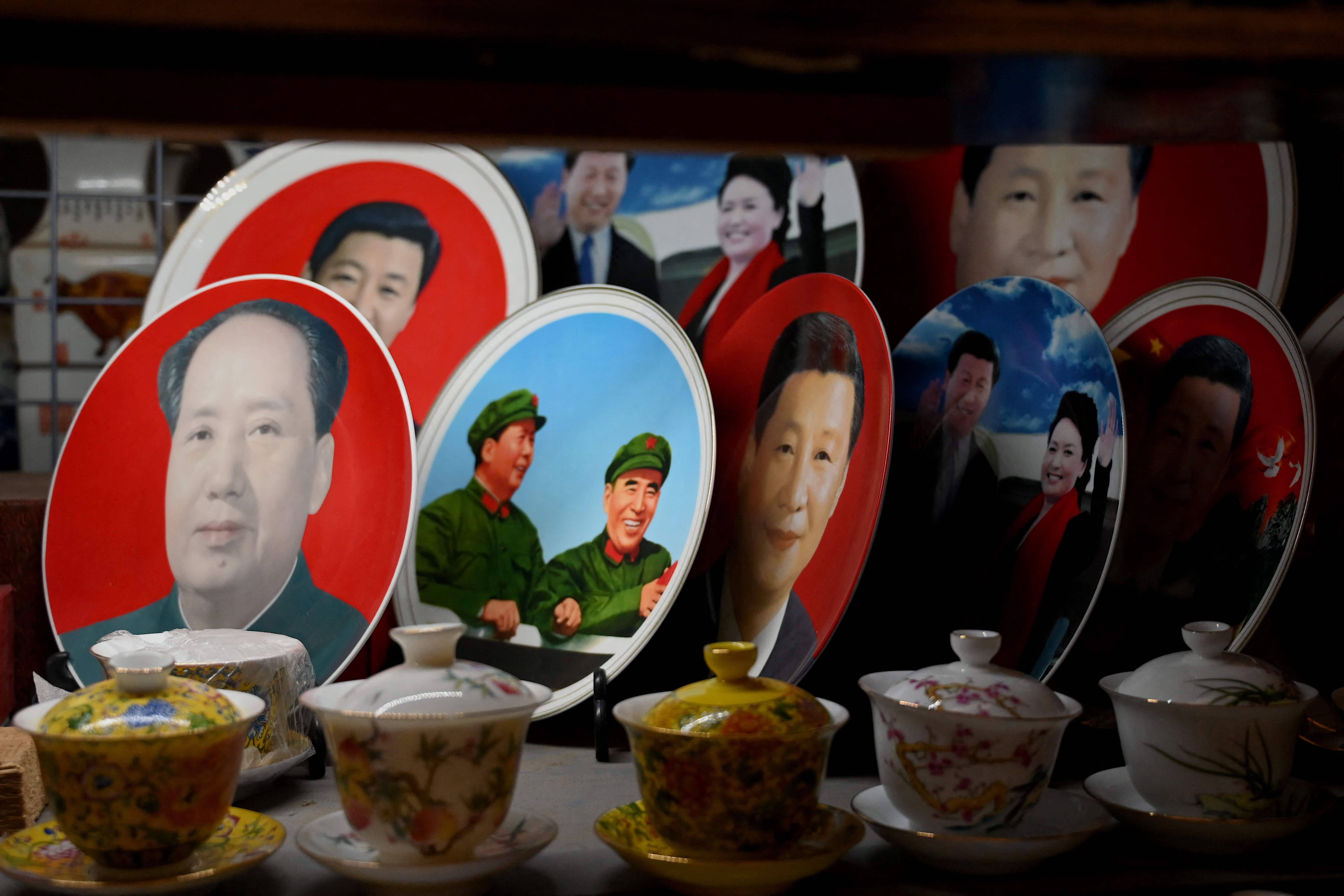‘No one will dare to challenge him’: China decree cements President Xi’s power and place in history
The Chinese Communist Party’s historic resolution could make Xi Jinping the country’s most powerful leader ever, reports William Yang


After a four-day closed-door meeting in Beijing, the Chinese Communist Party’s (CCP) central committee has passed a historic resolution to consolidate Chinese president Xi Jinping’s power, a move that experts say could make him the party’s most important figure to date.
Previously, only two other Chinese leaders have used similar decrees to cement their unique position in the party’s history. Mao Zedong passed a resolution in 1945 to strengthen his authority over the party, while Deng Xiaoping did so in 1981 to criticise the Cultural Revolution initiated by Mao, thereby laying the foundations for his political and economic reforms.
The meeting is known as the sixth plenum, because it is the sixth of seven secret gatherings that top Chinese officials hold every five years to set their strategic priorities around security, the economy, and future governance plans.
During a press conference on Friday, senior party officials described the third resolution as an essential document to unite the theory, will, and action of the party in order to achieve “future progress and in realising the second centenary goal and the great Chinese dream of rejuvenation”.
The meeting saw Mr Xi credited for the first time in an official document as “the main innovator” behind the set of policies titled “Xi Jinping Thought on Socialism with Chinese Characteristics for a New Era.”
“If Mao made China stand up and Deng Xiaoping made it rich, it seems like Xi Jinping sees himself making China a global power,” said Alex Dukalskis, an associate professor at the school of politics and international relations at University College Dublin.
Chinese legal scholar Teng Biao said the new resolution would cement Mr Xi’s place in the Communist Party’s history, and is reflective of the high adulation he is currently enjoying.
“He is only 68 years old now, so it’s likely that he will be in power for many years,” Mr Teng told The Independent. “If so, he will be influencing the CCP’s direction and Chinese politics for a long time, and that makes this historic resolution very different from the other two resolutions.”
Traditionally, the sixth plenum is an important occasion for members of the CCP to focus on ideology and party-building. Some observers have predicted that the outcome of the meeting will likely determine the agenda of the party’s congress in 2022, where Mr Xi is expected to pave the way for seeking his third term through the resolution.
“Since he abolished the presidential term limit in 2018, Xi has established his absolute authority,” Mr Teng explained. “The third historic resolution will further consolidate his authority.”

Dukalskis said that since there is no visible resistance to Mr Xi’s plan, including the likelihood of him running for a third term as president, the act of getting the Communist Party to affirm the resolution is about demonstrating his power.
“It signals to others who might be thinking of opposing the leader or criticising the leader that he is able to compel people to affirm resolutions that they may not believe in,” he said. “That’s an extremely powerful signal, and I think the resolution has that utility.”
However, Chinese historian Zhang Lifan has doubts about whether Mr Xi can successfully uphold his authority by means of the resolution alone.
“Whether the government can hold on to power isn’t simply about rewriting the party’s history,” he said. “Rather, it’s about their political performance.”
One of the issues highlighted in the resolution is the notion of “common prosperity”.
Since Mr Xi began to emphasise the importance of “common prosperity” earlier this year, Chinese officials have been tightening oversight of companies in various sectors and targeting prominent individuals, as they think the growing wealth inequality could lead to instability.
In one high-profile case, authorities cracked down on Alibaba ecommerce tycoon Jack Ma’s business empire after he gave a speech in Shanghai in October last year accusing financial watchdogs of stifling innovation.

Zhang describes common prosperity as a “utopian imagination” and thinks the drive is only likely to lead to “a growing polarisation between the rich and the poor”.
“The problem is still that property can’t be publicly owned, and power can’t be privately owned,” he said. “The one-party dictatorship cannot play the role of a judge for the redistribution of social wealth, which may only lead to further economic decline.”
Jeff Wasserstrom, a historian of modern China at the University of California in Irvine, described Mr Xi’s resolution as “fulfilling taking a grand historical trajectory to its conclusion”.
“What’s new with the Xi Jinping era is giving credit to this individual,” he said.
The resolution will further strengthen Mr Xi’s absolute authority in China, and will transform China’s “collective authoritarianism” into that of an individual, Mr Teng warned.
“The resolution will reinforce this individual authoritarianism, and in the future, almost no one or faction will have the power to challenge Xi,” he said.






Join our commenting forum
Join thought-provoking conversations, follow other Independent readers and see their replies
Comments